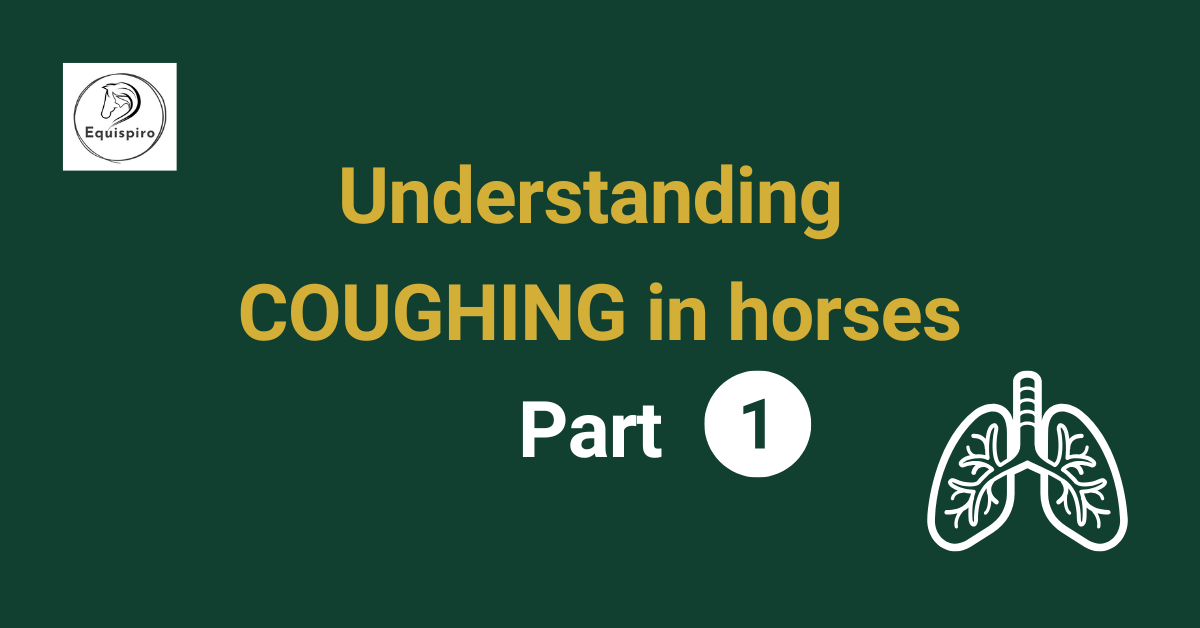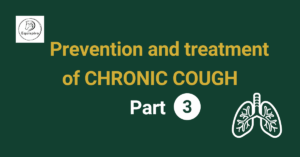Part 1 of our series on equine respiratory health
Coughing in horses is one of those symptoms that can seem insignificant – until they are not. Whether it’s a single dry cough or a persistent cough, owners often wonder: Is it just dust? An allergy? Something contagious? Should I be worried?
We’re dedicating an entire series to helping you find clear and practical answers. In three parts, we explore the question:
- What causes coughing in horses and how to recognise the warning signs
- What to do if your horse starts coughing and when you should call the vet
- How to prevent coughs, treat chronic respiratory diseases and maintain long-term health
In this first article we look at the basics:
- Why coughing should always be taken seriously
- How the cough reflex works in horses
- The most common causes of coughing and what they can mean
Whether your horse has just started coughing or is already suffering from a diagnosed respiratory disease, this series is for you.
Let’s start with what a cough really means.
What exactly is a horse’s cough?
Coughing is the body’s way of clearing the airways. It is a protective reflex that serves to expel irritants, mucus or pathogens from the respiratory tract. In horses, just as in humans, a single occasional cough can be harmless. But repeated or persistent coughing almost always indicates an underlying problem.
There are two main types of cough that you should be aware of:
- Dry (non-productive) cough
- This cough usually sounds short and rough and is not accompanied by nasal discharge.
- It may indicate irritation, an allergy or the early stages of inflammation.
- It often occurs in dusty environments or during exercise
- Moist (productive) cough
- This cough is deeper and is often accompanied by swallowing or nasal discharge.
- It may indicate mucus production due to an infection or chronic respiratory disease.
- If it persists, it must be treated by a vet.
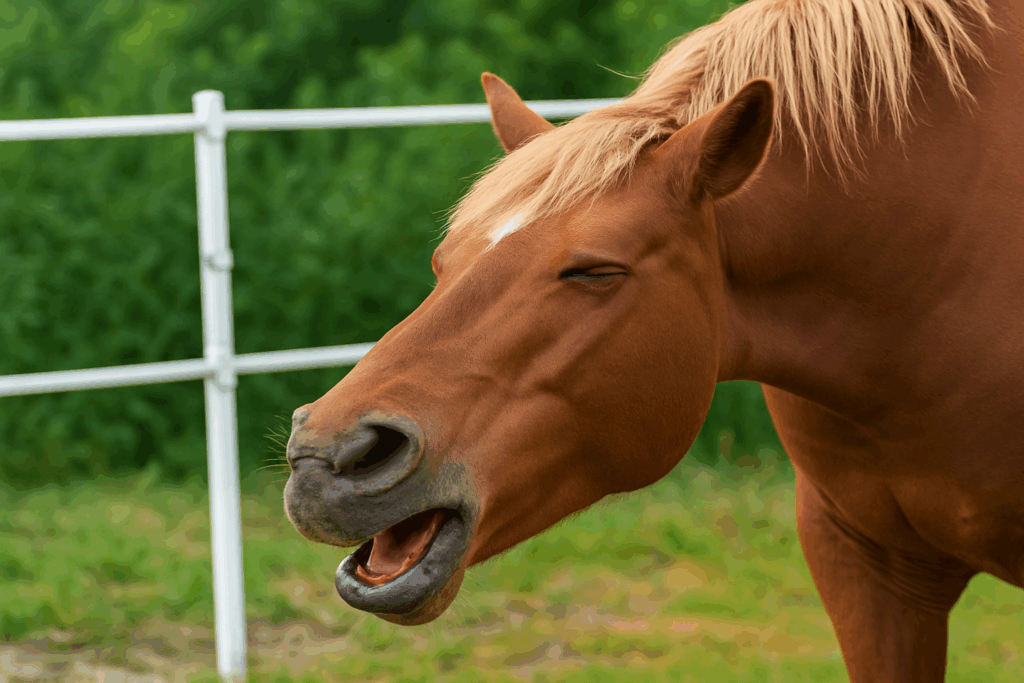
An important point to remember:
Even if the cough sounds “insignificant”,” it’s a sign that your horse’s airways are struggling with something. Don’t ignore it!
What are the possible causes of coughs and how to distinguish between them?
Not all coughs are the same – and neither are their causes. If you know the likely trigger, you can respond better. Here are the most common causes of coughing in horses and how to recognise them:
1️⃣ Irritation from the environment
Cause: Dusty hay, poor ventilation, change of bedding, smoke, ammonia deposits in the stable.
Signs:
- Dry cough, often at the start of exercise or when eating hay
- No fever or nasal discharge
- Stops when the horse is taken outside or into clean air
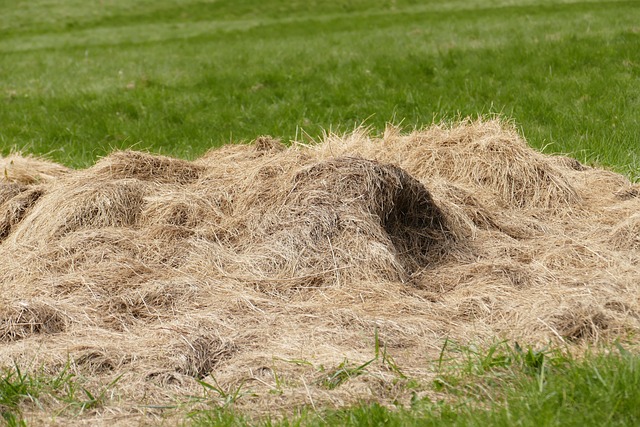
Answer:
- Improve aeration
- Soak or steam hay
- Switch to low-dust bedding
- Monitor for improvement
2️⃣ Viral infection (e.g. equine influenza, herpes virus)
Cause: Infection from other horses – especially at competitions or yards
Signs:
- Sudden onset of coughing
- Clear nasal discharge
- Fever, lethargy, swollen lymph nodes
Answer:
- Isolate horse
- Contact vet
- Supportive care and rest
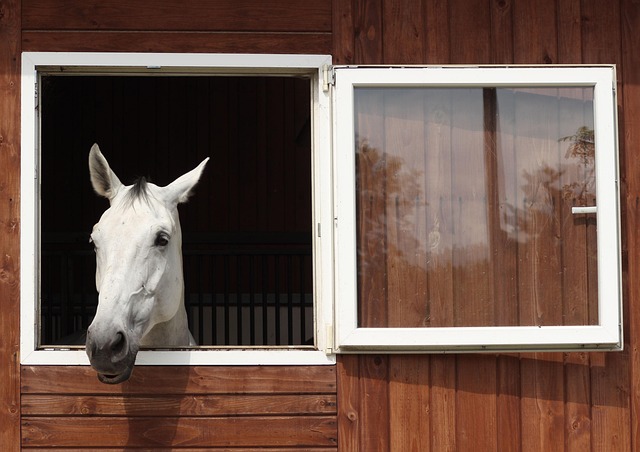
3️⃣ Bacterial infection (e.g. strangulation, pneumonia)
Cause: Often secondary to a viral infection or due to aspiration
Signs:
- Productive, moist cough
- Yellow or green nasal discharge
- Fever, poor appetite
- Possibly rapid breathing
Answer:
- Veterinary examination
- Antibiotics if necessary
- Close monitoring
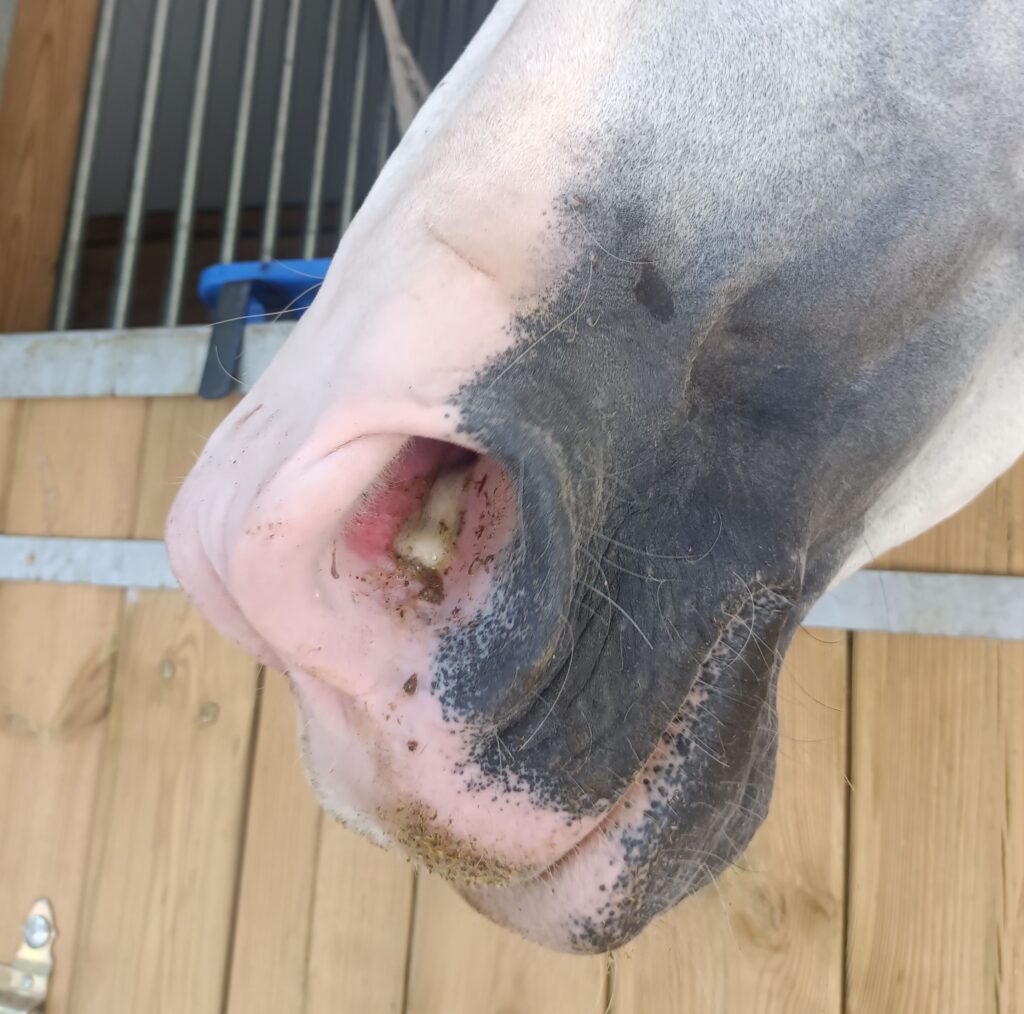
4️⃣ Equine asthma (RAO, IAD)
Cause: Chronic inflammation due to allergens such as mould, dust or pollen
Signs:
- Frequent dry or wet cough
- Worse in the stable or in summer (pasture-associated asthma)
- Exercise intolerance, nasal blowing
- May not have a fever
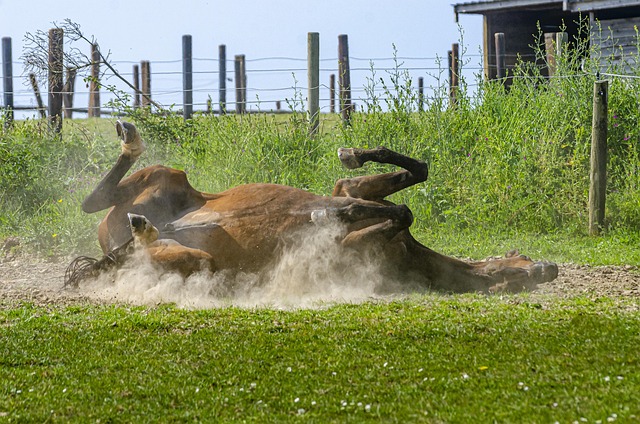
Answer:
- Environmental management (dust reduction is the key)
- Inhalation therapy or corticosteroids
- Long term plan with the vet
5️⃣ Parasites (e.g. lungworms – rare)
Cause: Parasite migration through the lungs, especially in young horses or horses at pasture that are exposed to donkeys
Signs:
- Intermittent cough, may be mild
- Often no fever
Answer:
- Faecal test
- Deworming according to the vet’s instructions
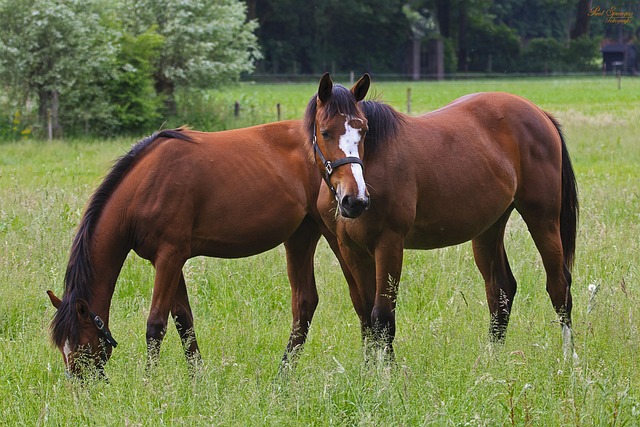
6️⃣ Residual mucus after rest or change of weather
Cause: Mucus accumulation during stable rest or in cold, damp weather
Signs:
- Slight cough when warming up
- No other clinical signs
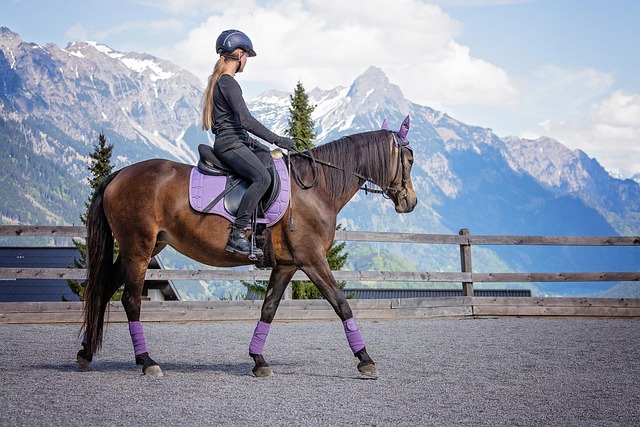
Answer:
- Allow a longer warm-up
- Make sure you give the horse enough exercise
- Observe whether it gets better in a few days
Summary
Coughing in horses is never something to be dismissed. Even a mild or occasional cough can be the first sign of irritation, infection or incipient respiratory disease. Understanding how a cough works and what could be causing it will put you one step ahead of your horse’s long-term health.
In this first part of our series, we looked at
- Why you should never ignore a horse’s cough
- How to recognise different types of cough
- What the most common causes are – from dust to disease
But what should you actually do if your horse starts coughing?
👉 Next: What to do if your horse starts coughing
In part 2, we’ll show you what to do:
- The first steps you should take when you hear a cough
- When it’s time to call the vet
- What a proper diagnosis looks like
- And what treatment options really work
Stay tuned and follow us on Instagram or Facebook for more tips.
Let’s work together to make your horse breathe easier!

